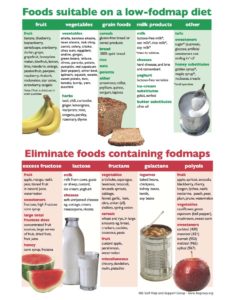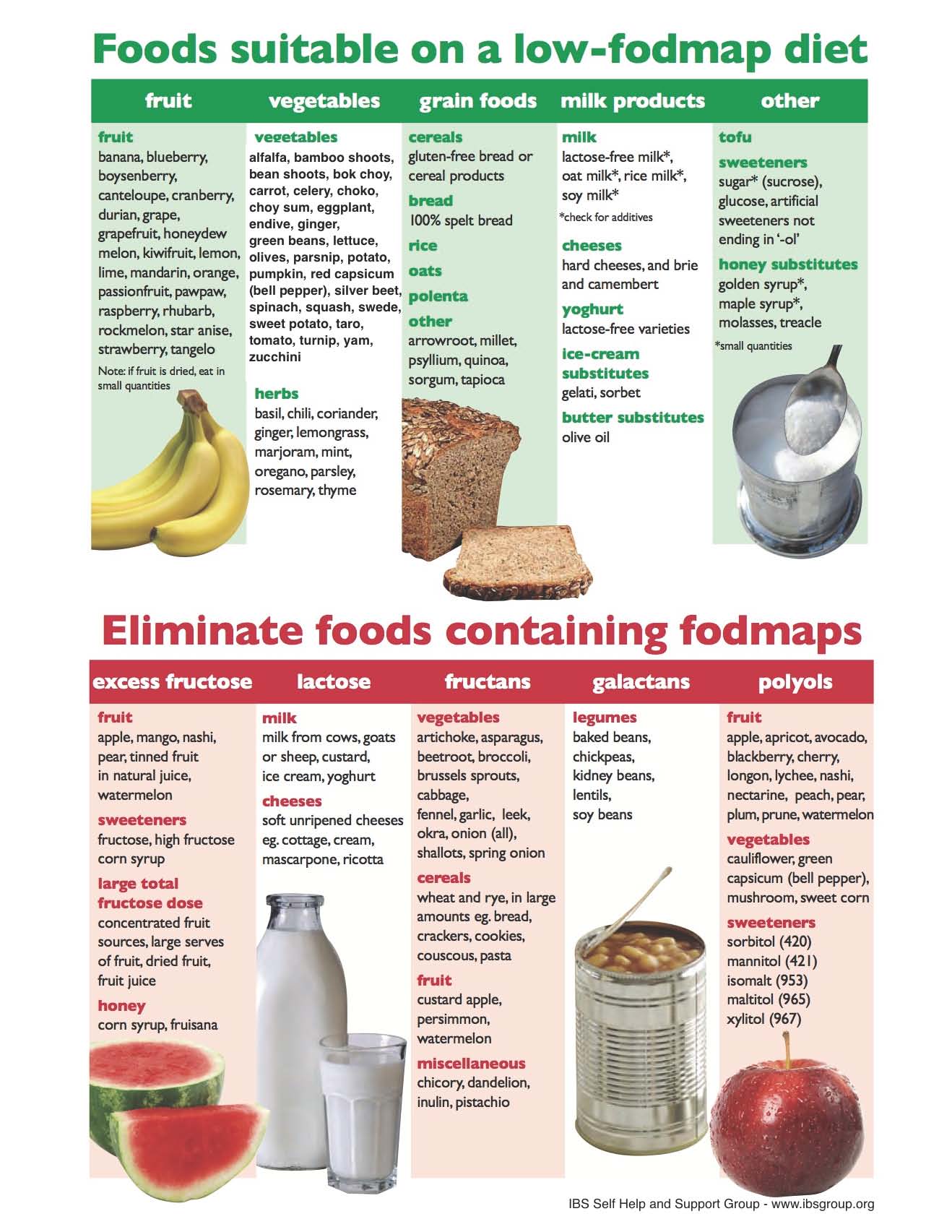 Patients and IBS sufferers have heard the phrase “FODMAP diet” a lot over the past year or so, and many are left scratching their head as to what it is. Whether medicine is prescribed for a particular gastrointestinal illness or not, diets almost always are. When it comes to GERD, Chron’s Disease, Diverticulitis, IBS/IBD and other gastrointestinal illnesses, diets play a major hand in the formation of and the controlling of such diseases. The same can be said for the FODMAP diet, which stands for Fermentable Oligo-Di-Monosaccharides and Polyols. FODMAPS themselves are different types of sugar and fiber that ferment and cause G.I. symptoms.
Patients and IBS sufferers have heard the phrase “FODMAP diet” a lot over the past year or so, and many are left scratching their head as to what it is. Whether medicine is prescribed for a particular gastrointestinal illness or not, diets almost always are. When it comes to GERD, Chron’s Disease, Diverticulitis, IBS/IBD and other gastrointestinal illnesses, diets play a major hand in the formation of and the controlling of such diseases. The same can be said for the FODMAP diet, which stands for Fermentable Oligo-Di-Monosaccharides and Polyols. FODMAPS themselves are different types of sugar and fiber that ferment and cause G.I. symptoms.
“Taken out in the diet are many compounds found in wheat, some fruits and vegetables, garlic, onions and sugar substitutes. The University of Michigan hospital, with the help of gastroenterologist Dr. William Chey, and dietitian Lauren Van Dam, conducted the biggest study of its kind. Registered dietitians monitored 90 IBS patients for six weeks. Half followed a prescribed low FODMAP diet, and half were a control group that cut down on large meals and known irritants such as caffeine and alcohol. as caffeine and alcohol. “More than 50% of the patients on the low FODMAP diet had major improvement of their abdominal pain, compared with 20%of the control group.” Excerpt from http://www.fox2detroit.com/health/159908958-story
GANJ’s own Dr. Joseph Shami would like all patients to sign up for a free webinar discussing the benefits of the FODMAP diet: Register here.
More information can be found about the FODMAP Diet here:
Unsure if a low FODMAP diet is right for you? Call today to schedule an appointment with one of our gastroenterologists.


 Patients and IBS sufferers have heard the phrase “FODMAP diet” a lot over the past year or so, and many are left scratching their head as to what it is. Whether medicine is prescribed for a particular gastrointestinal illness or not, diets almost always are. When it comes to
Patients and IBS sufferers have heard the phrase “FODMAP diet” a lot over the past year or so, and many are left scratching their head as to what it is. Whether medicine is prescribed for a particular gastrointestinal illness or not, diets almost always are. When it comes to 